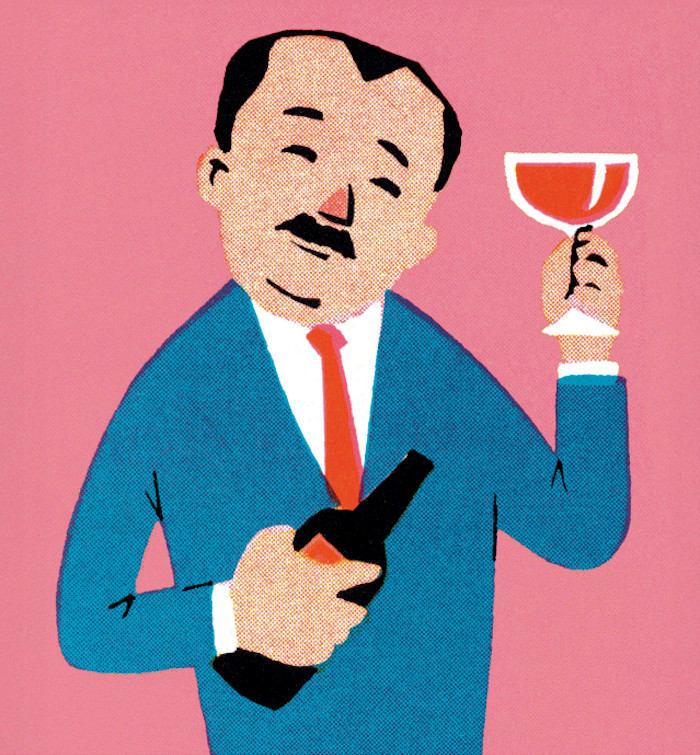
Jake O'Brien Murphy went from bartending to a brand ambassador role. After a four-year stretch, this is what he learned.
I was the UK spirits ambassador for Moët Hennessy for just over four years. It was a privileged position and I am fortunate enough to say I was genuinely proud of the brands I represented. Which is good, because if you paid me enough, I’d sell shit. Here’s what I learned. A question I get asked a lot is: ‘How did you get that job?’ Let’s call it serendipity and good counsel. It certainly wasn’t in the plan. My dream was to be the best bartender in the world. I ended up being the third-best bartender, in a team of three, in the bar I owned.
I never seriously considered working for brands, because I delight in the freedom to express my opinions openly and with impunity. For example, here’s a handful of things I think: sommeliers are all liars; Finlandia Grapefruit is peerless; I haven’t really understood a single thing Remy Savage has ever done; flare is sick; and, finally, I can’t tell the Schofields apart (I think Max is the tall one).
It struck me that perhaps in working for brands, instead of with them, I wouldn’t be able to express independent thought outside of the party line. It turns out, if you smile while you are saying it, it’s fine.
People love to ask about expenses, and yes, spending someone else’s money is immense fun. Less fun is the time spent inputting each and every receipt and justifying every single purchase down to the very penny. The money comes from somewhere. Brands, budgets, codes. Contrary to popular belief, brand ambassadors can’t spend indiscriminately.
I’m of the opinion BAs should be generous. However, I was keen not to let it warp my sense of reality. As a bartender, I had served BAs who treated their company card as an extension of their own personal wealth.
Suffice to say, you find yourself in positions that, outside of the specific context of your job, you would never be in. Fancy dinners. Trips away. Rare bottles. For the most part, that’s a real perk. Though I will say, I was left with an abiding disdain for ritzy places like Mayfair, generally, and private members’ clubs, specifically. My personal mantra was simple – this isn’t real life, this isn’t my money. I think that’s crucially important if you want any kind of longevity as a BA – if you’re only in it to take advantage of expenses, cultivate your own myth and act inappropriately, may I suggest a career in politics.
The role, as it evolves to address the realities of a faltering market, didn’t and doesn’t focus singularly on the on-trade. Perhaps different businesses operate differently, but I found myself working across various aspects of the company. I didn’t expect this but I have come to value the experience. While this often chafed against my privately held beliefs, it has proven to make me a much more well-rounded professional and widened my niche skill set considerably. Just as an aside, I hate trade shows and I know that now. They are simply a gathering of some of the worst people to ever purchase chinos.
On a more constructive note, I’d never appreciated the strength of my bargaining position when it came to my contract. I don’t think many of us do in hospitality. For example, I was explicit in my refusal of any social media-related KPIs. I didn’t want to sell Hennessy to my nan. She drinks enough of it. That overlap between professional and personal – “all views are my own” – felt uncomfortable and disingenuous. That’s just an example – however, it taught me two lessons: I could back myself and be taken seriously, and separation of work and home, church and state, is essential to remain sane.
Lastly, a BA should never slag off another brand. What a weak position to advocate from. Here’s a secret – very few brands, if any, have a spotless record. Not everyone can be Springbank. If the instinct is to tear down instead of build up, you can guarantee that they’re hiding their own shortcomings. A much stronger and ultimately more worthwhile position to take is as a category specialist. First, because it’s personally enriching, but second because it makes the whole endeavour of education a more meaningful experience. I’m sceptical of any ‘expert’ who can only recite from a pre-prepared script and expresses no formalised opinion otherwise. You should be too. Once upon a time, I read How to Win Friends and Influence People. Back when I was experimenting with being a sociopath. One thing that stuck with me is “to be interesting, be interested”.
The brand ambassador’s utility is shifting as the economic instability of the current spirits industry shifts and groans. I have no idea what will happen. However, I think one thing remains true. Ambassadors should always work both ways. For the brand, and for the bartender. I tried with my limited capabilities to advocate for the professional bartender wherever and however I could. Ultimately, I think this extends to a duty of care, not for an individual, but for anyone who has decided to make hospitality a career. I was only in the position I was in for the simple reason that some kindly BAs believed in me. I hope, more than anything else, this is the part of the job I did well. Because I know without people like Meimi Sanchez, Mike Foster, Mark Tracey, Rico ‘Suave’ Dynan, Emmali Stenhouse – I’d probably still be collecting glasses.


